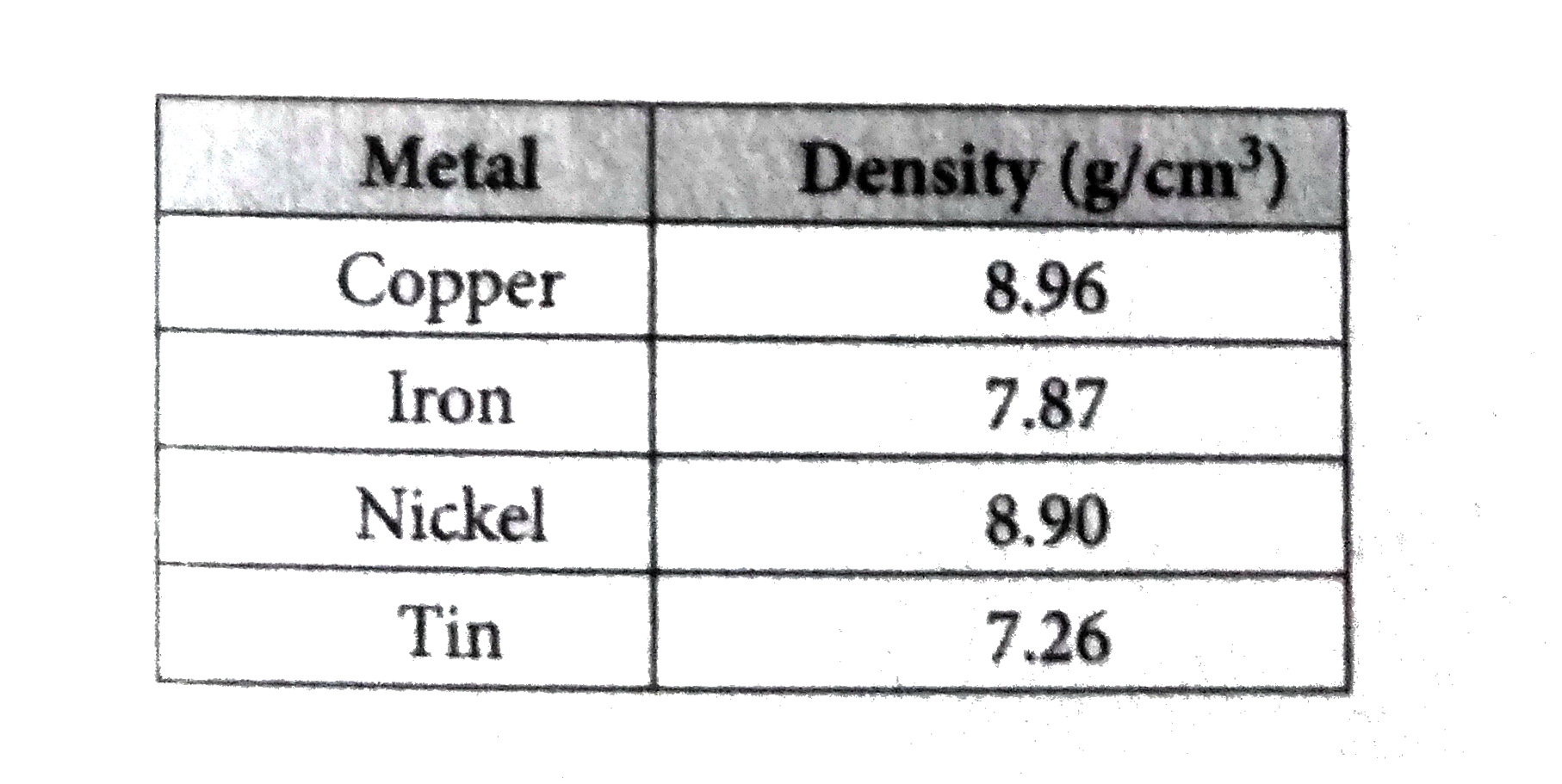The density of a subtance can be found by dividing the mass of the substance by the volume of the substance. The table gives the density of several pure metals in grams per cubic centimeter. Suppose a rectangular sheet of a pure metal weights about 515.9 grams and measures 14 inch by 2 inches by 8 inches. Assuming the sheet is one of the metals in the table, which metal is it? (There are approximately 2.54 centimeters in 1 inch.)

A
Copper
B
Iron
C
Nickel
D
Tin
Video Solution
Text Solution
The correct Answer is:B
Difficult: Medium
Category: Problem Solving and Data Analysis/ Rates, Ratios, Proportions, and Percentages
Strategic Advice: Always pay careful attention to units. When converting from a linear measure, such as inches, to cubic measure, such as cm3 (or vice versa), you will need to write three units conversions.
Getting to the Answer:Start by finding the valume of the metal sheet using the formula V=lwh. The volume is 14×2×8=4 cubic inches. Now, carefully convert this to cubic centimeters:
4in3×2.54cm1in×2.54cm1in×2.54cm1in=65.55cm3
Skim the question again: To find the density of the metal, divide the mass (given in the question) by the volumes : 515.9/65.55=7.87, which matches the density of iron, (B).
|
Topper's Solved these Questions
Similar Questions
Knowledge Check
A right triangle has sides measuring 12 inches , 35 inches , and 37 inches . What is the cosine of the angle that lies opposite the 35-inch side ?
A1235B3537C3512D1237The density of an object is equal to the mass of the object divided by the volume of the object. What is the volume, in milliliters, of an object with a mass of 24 grams and a density of 3 grams per milliliter?
A0.125B8C21D72Why is Frenkel defect not found in pure alkali metal halides ?
Acations and anions have almost equal sizeBthere is a large difference in size of cations and anionsCcations and anions have low coordination numberDanions cannot be accommodated in voids.
The diameter of a metallic ball is 4.2 cm. What is the mass of the ball, if the density of the metal is 8.9 g per cm3?
View SolutionWhy is Frenkel defect not found in pure alkali metal halides ?
View SolutionName the
The property possessed by metals by which they can be beaten into sheets
View SolutionThe density of lead is approximately 0.41 pounds per cubic inch. What is the approximately mass, in pounds, of a lead ball that has a 5 inch diameter?
View SolutionThe dimensions of a block of cheese are 12 inches by 3 inches by 3 inches. What is the volume , in cubic inches , of the block of cheese ?
View Solution